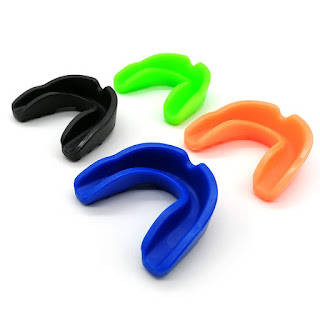Pediatric Dental Issues: Protecting Your Child's Oral Health During the Summer
Protecting Your Child's Oral Health During the Summer
The summer season brings with it a host of fun activities for children, from beach vacations and outdoor sports to indulging in tasty treats and sipping on refreshing beverages. While kids enjoy their break from school, it's essential for parents to pay extra attention to their oral health. The summer months can present unique challenges to pediatric dental care, including an increased risk of tooth decay, dental emergencies, and poor oral hygiene habits. In this article, we will explore common pediatric dental issues that arise during the summer and provide valuable tips to help parents safeguard their children's oral health.
1. Tooth Decay and Sugar Consumption:
Summer is synonymous with ice cream, popsicles, sodas, and other sugary treats that children love. Excessive consumption of sugary foods and drinks can lead to tooth decay. The combination of sugar and bacteria in the mouth produces acids that erode tooth enamel, leading to cavities. Encourage moderation when it comes to sugary snacks and emphasize the importance of regular brushing and flossing.
Tip: Limit sugary treats to occasional indulgences and ensure that your child rinses their mouth with water after consuming them. Encourage healthier alternatives like fresh fruits, yogurt, and sugar-free popsicles.
2. Dehydration and Dry Mouth:
Children tend to spend more time outdoors in the summer, engaging in physical activities and often forgetting to stay hydrated. Dehydration can result in dry mouth, a condition that reduces saliva production and increases the risk of tooth decay. Saliva plays a crucial role in neutralizing acids and washing away food particles and bacteria.
Tip: Remind your child to drink water regularly throughout the day, especially when participating in sports or spending extended periods in the sun. Encourage them to carry a water bottle and make hydration a fun habit.
3. Dental Emergencies:
Summer activities often involve sports, cycling, and outdoor play, which can put children at a higher risk of dental emergencies. Falls, collisions, and accidents can result in chipped or broken teeth, dislodged teeth, or injuries to the mouth and jaw. It is crucial to address these emergencies promptly to prevent further complications.
Tip: Ensure that your child wears appropriate protective gear, such as mouthguards, when engaging in sports. Teach them about playground safety and supervise younger children during play. In the event of a dental emergency, contact your pediatric dentist immediately.
4. Irregular Oral Hygiene Routine:
With the relaxed schedule of summer break, children may develop irregular oral hygiene habits. Late nights, sleepovers, and travel can disrupt their routine, leading to missed brushing and flossing sessions. Inconsistent oral hygiene practices can increase the risk of tooth decay and gum disease.
Tip: Encourage your child to maintain a consistent oral hygiene routine even during the summer break. Set reminders or create a fun chart to track their brushing and flossing habits. Make sure they brush at least twice a day for two minutes and assist younger children as needed.
Protecting your child's oral health during the summer requires a proactive approach. By being mindful of the risks associated with sugar consumption, dehydration, dental emergencies, and irregular oral hygiene routines, parents can ensure their children enjoy a healthy and happy summer break. Encourage good habits, provide healthy snack options, and prioritize regular dental check-ups to prevent and address any potential pediatric dental issues. Remember, a little extra care during the summer months can go a long way in preserving your child's bright smile for years to come.



Comments
Post a Comment